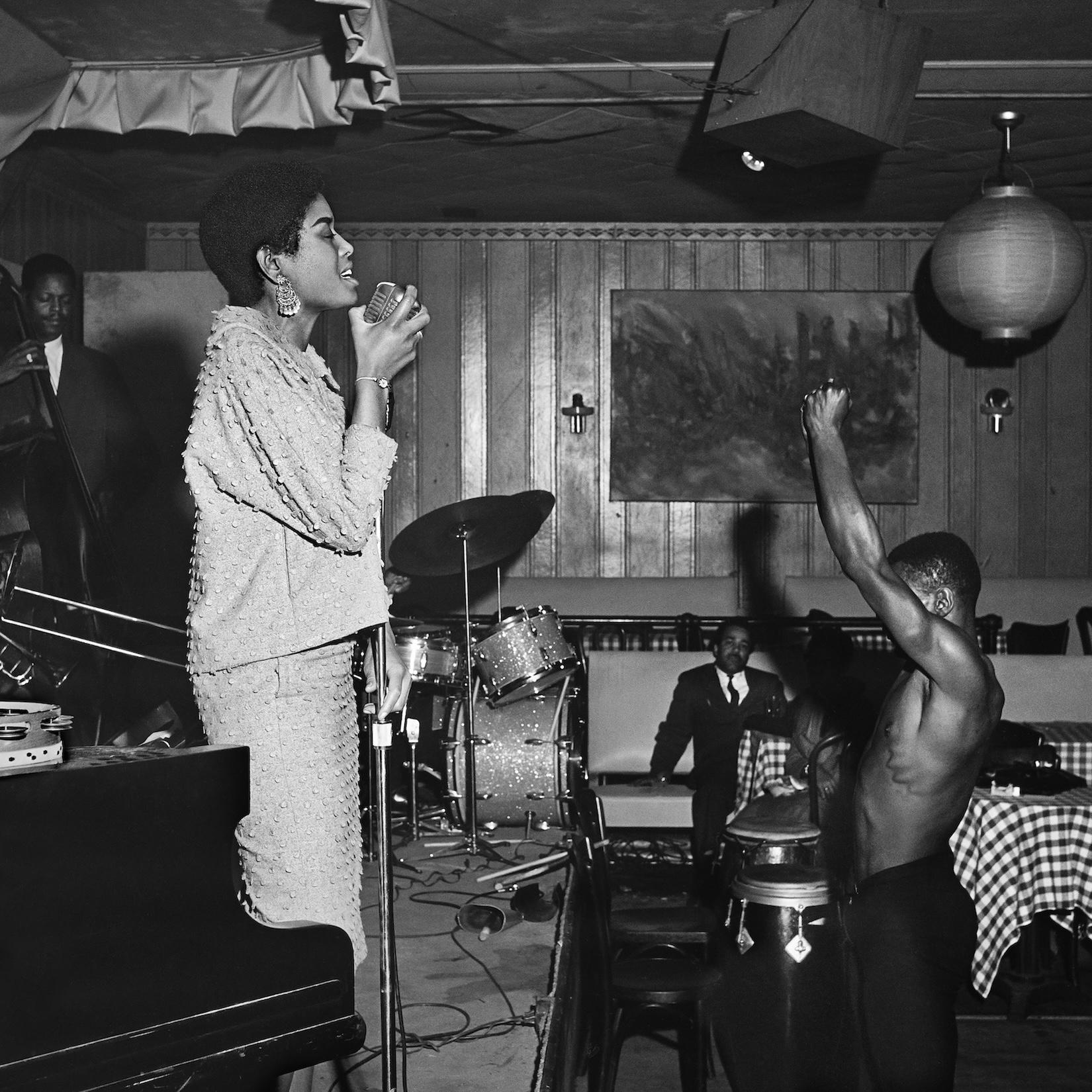 Kwame Brathwaite, Untitled (Couple’s Embrace), ca.1971. Archival pigment print. Courtesy Kwame Brathwaite Archive and Philip Martin Gallery, Los Angeles. © Kwame Brathwaite Archive
Kwame Brathwaite, Untitled (Couple’s Embrace), ca.1971. Archival pigment print. Courtesy Kwame Brathwaite Archive and Philip Martin Gallery, Los Angeles. © Kwame Brathwaite ArchiveKwame Brathwaite: Revolutionary Movements at the Mead Museum at Amherst College will foreground photographer Kwame Brathwaite’s (b.1938, New York; d.2023, New York) deep engagement with social and political movements and his enduring attention to the liberated Black body. The exhibition centers Brathwaite's activism and focuses on the body as seen through many kinds of movement, ranging from concert performance and fashion shoot posing to dancing, boxing, and embracing.
For this project, Lisa Crossman and Siddhartha Shah will work closely with the artist’s son and daughter-in-law, Kwame and Robynn Brathwaite (who run the Kwame Brathwaite Archive and are both Amherst graduates). These relationships will shape both the selection of materials and the exhibition’s interpretive framework. The show will tell new stories about the artist’s work through photographs from his archive that have never before been publicly released, alongside a selection of recently published studio portraits. The images range from scenes of everyday life and protest to those that convey Black joy, style, music, love and tenderness; the grace and power of the body in motion; as well as Pan-African solidarity and Black unity.
 Kwame Brathwaite, Untitled (Dap), ca.1970. Archival pigment print. Courtesy Kwame Brathwaite Archive and Philip Martin Gallery, Los Angeles. © Kwame Brathwaite Archive
Kwame Brathwaite, Untitled (Dap), ca.1970. Archival pigment print. Courtesy Kwame Brathwaite Archive and Philip Martin Gallery, Los Angeles. © Kwame Brathwaite ArchiveStudents will help interpret the works and develop programs, and courses in Black studies, American studies, music, theater and dance, and art history will engage with the exhibition in the classroom. Partnerships with Amherst’s athletics department and Dance and Step at Amherst College will explore Black movement as resistance, while the Center for Restorative Practices will facilitate student-led talking circles on Blackness and liberation.
 Kwame Brathwaite, Untitled (Abbey Lincoln and Dancer), ca.1965. Archival pigment print. Courtesy Kwame Brathwaite Archive and Philip Martin Gallery, Los Angeles. © Kwame Brathwaite Archive
Kwame Brathwaite, Untitled (Abbey Lincoln and Dancer), ca.1965. Archival pigment print. Courtesy Kwame Brathwaite Archive and Philip Martin Gallery, Los Angeles. © Kwame Brathwaite Archive